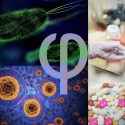Category Archives: News
July & August 2019 PhilInBioMed Magazine
University of Pittsburgh joins PhilInBioMed network
The Department of History and Philosophy of Science (HPS) at the University of Pittsburgh has joined the PhilInBioMed international network, making it the 12th institutional member in the network.
HPS aims to investigate science in general, its nature and fundamentals, its origins, and its place in modern politics, culture, and society. Among the current HPS faculty are Collin Allen, Mazviita Chirimuuta, Michael Dietrich, Jonathan Fuller, Eduoard Machery, Sandra Mitchell, and Jim Woodward We say welcome Pittsburgh!
New postgraduate training course at the University of Bordeaux: Philosophy in science, conceptual approaches applied to biological and medical research
The course aims to equip medical, biological and neuroscientists with the conceptual tools of philosophy of science.
Philosophy is not conceived here as a reflection about science, but rather as a set of methods to improve research relevance and efficacy.
At the end of the program, participants will submit a paper, written in collaboration with the philosopher who supervises them, to a
scientific journal. All classes are taught in French.
Program Director : Maël Lemoine, Professor, philosophy of medical science, University of Bordeaux
Crédits: Images Gerd Altmann & Arek Socha (Pixabay), Photos Drew Hays & freestocks.org (Unsplash)
June 2019 PhilInBioMed Magazine
New PhilInBioMed member institution
The Department of Philosophy at the University of Cincinnati has joined the PhilInBioMed network. It is now part of one of the nine institutional members of the international network. The department is one of the main centers for the study of philosophy of biology, philosophy of cognitive science, philosophy of mind, and general philosophy of science in the USA. PhilInBioMed members from Cincinnati include Valerie Hardcastle, Tom Polger, and Angela Potochnik.
May 2019 PhilInBioMed Magazine
New Philosophy of Biology section in eLIFE
The importance of philosophy in the life sciences is becoming more and more obvious – to philosophers and scientists alike. One marker for the increased awareness is the new "Philosophy of Biology" section of eLIFE. This peer-reviewed journal targets an audience in the biomedical and life science field. The fact that they now welcome spontaneous submissions from philosophers of biology is a major step towards more interdisciplinarity. Among the first to publish in this section are PhilInBioMed members Lucie Laplane, Sabina Leonelli, Kate MacCord, Jane Maienschein and Thomas Pradeu.









